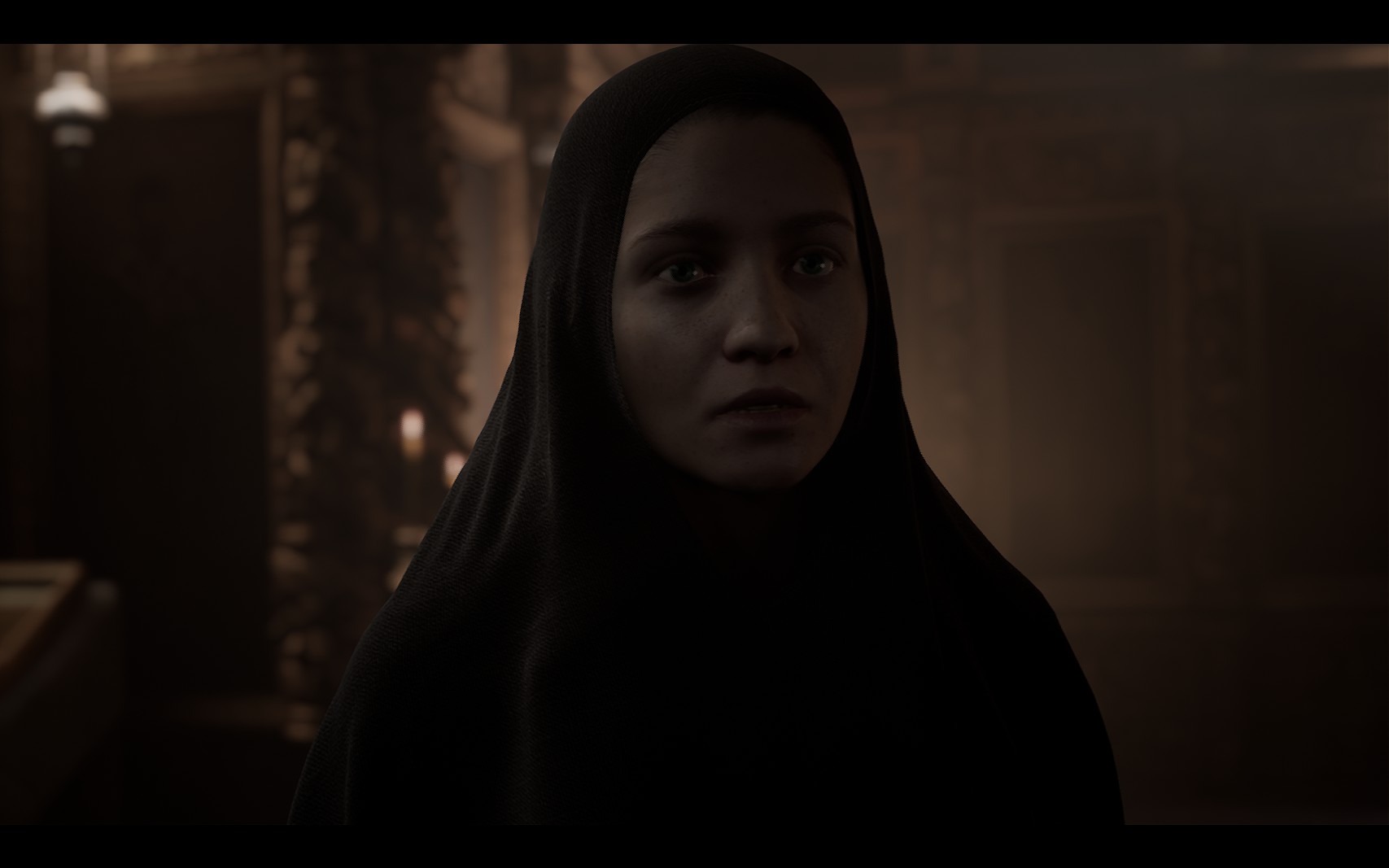
Indika is a misfit Russian Orthodox nun on a mission. She's tasked with delivering a note to the Danilov monastery, which is a welcome reprieve, because the other nuns in her own monastery hate her guts. Little wonder, though: she's not a very good nun.
What is it? Third-person puzzle-centric adventuring starring a jilted Russian Orthodox nun
Expect to pay: TBC
Developer: Odd Meter
Publisher: 11 Bit Studios
Reviewed on: RTX 3060 (laptop), Ryzen 5 5600H, 16GB RAM
Multiplayer? No
Steam Deck: TBC
Link: Official site
The trip is fated to go spectacularly wrong, and that's no spoiler, because the tone of Indika immediately warns us that we've entered a redemption-free zone. Across the six hours it took me to complete, our doomed hero moves through a succession of bleak, dehumanising environments, solves a bunch of puzzles, survives some utterly miserable encounters, fails to achieve anything she set out to do, and then must go on living. It didn't make me feel good, but I loved it all the same.
Indika's evocation of late 19th century Russia is daubed with horror-inflected surrealism: The narrow slush-flooded lanes of the monastery are shaded by sagging cupolas, and outside the monastery's walls everything is bizarrely oversized, even the mangy dogs. The world is pockmarked with unexplainable chasms and knotty architecture. Ruin is ubiquitous, though we're never told why. Environments rarely logically cohere: a town is shadowed by a giant viaduct, which is itself shadowed by an immense monastery. For some reason, I'm usually traversing this expanse via parapet and scaffolding. The result is impressionistic, dreamlike and rotely "videogame-y" at the same time, not least because the soundtrack consists of ambient-leaning chiptune that sometimes ascends into strobing dance.
What kind of game is Indika? Remove its tonally kaleidoscopic habit and it's a narrative-driven third-person adventure with environmental puzzles. The puzzles aren't always brilliant or original, but they are at least varied, and utilise the unconventional environments in interesting ways. It has some chase sequences with trial-by-error choices, and there's a platforming sequence involving giant dead fish that I downright hated. Indika can't shoot, punch, crouch or jump, but there's a prayer button.
Shortly after leaving her monastery Indika meets escaped convict Ilya, who tempts her away from her mission with a more promising option: there's a mysterious artefact called the kudets in nearby Spasov, which offers "the only rational remedy from infertility, insobriety, infidelity, and other physical complications and afflictions of the soul."
Ilya wants the kudets to fix his gangrenous arm; Indika just wants to stop the sinful voices in her head. She's constantly harried by temptations and thought crimes, though whenever she proselytises there's a faintly ironic ring to it, as if she's still pretty unsure about this whole nun thing. Sometimes her devilish alter-ego takes control and the world literally splits in two. The only way to fix it is to mash that prayer button, which slides the world back into proportional harmony.
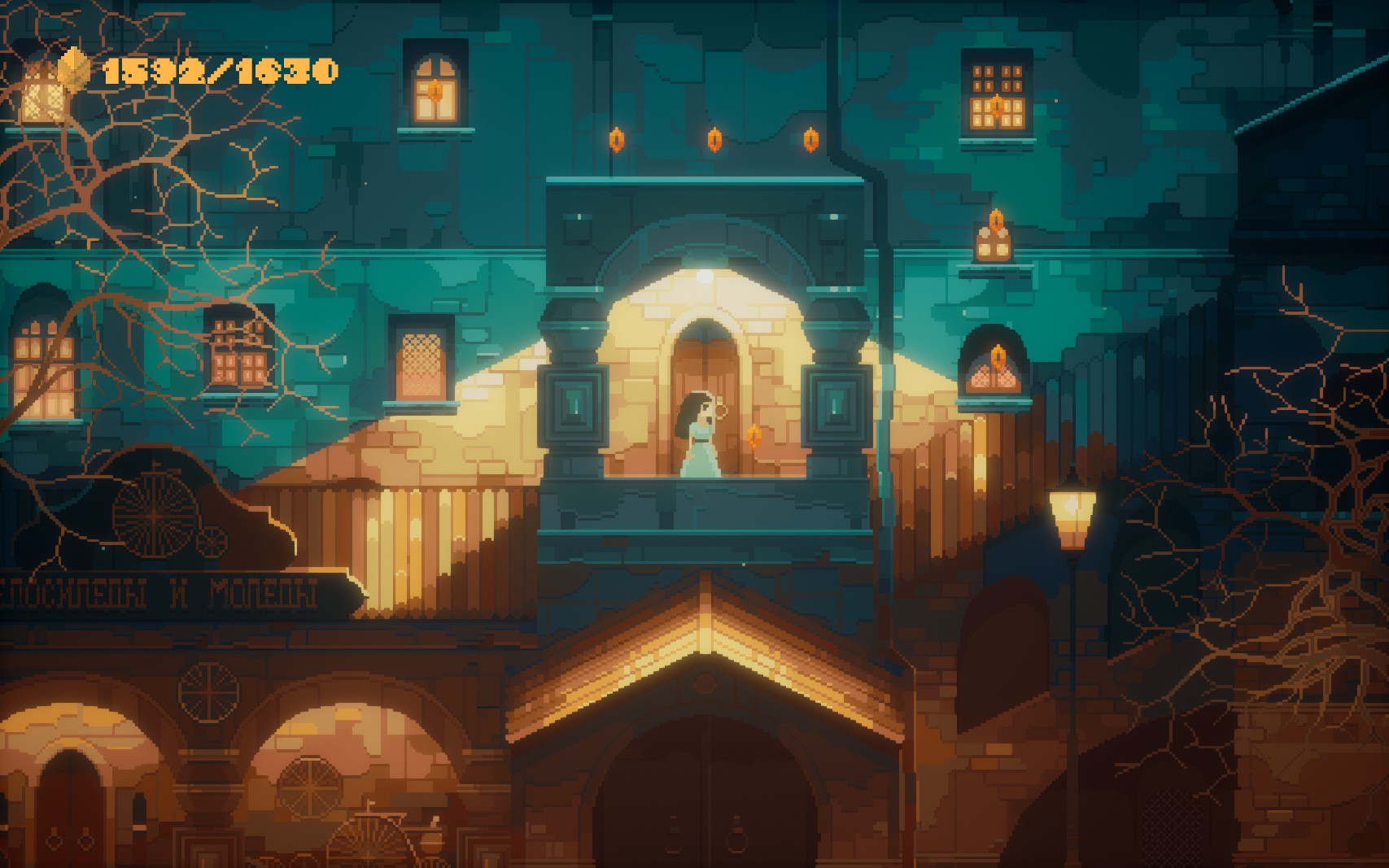

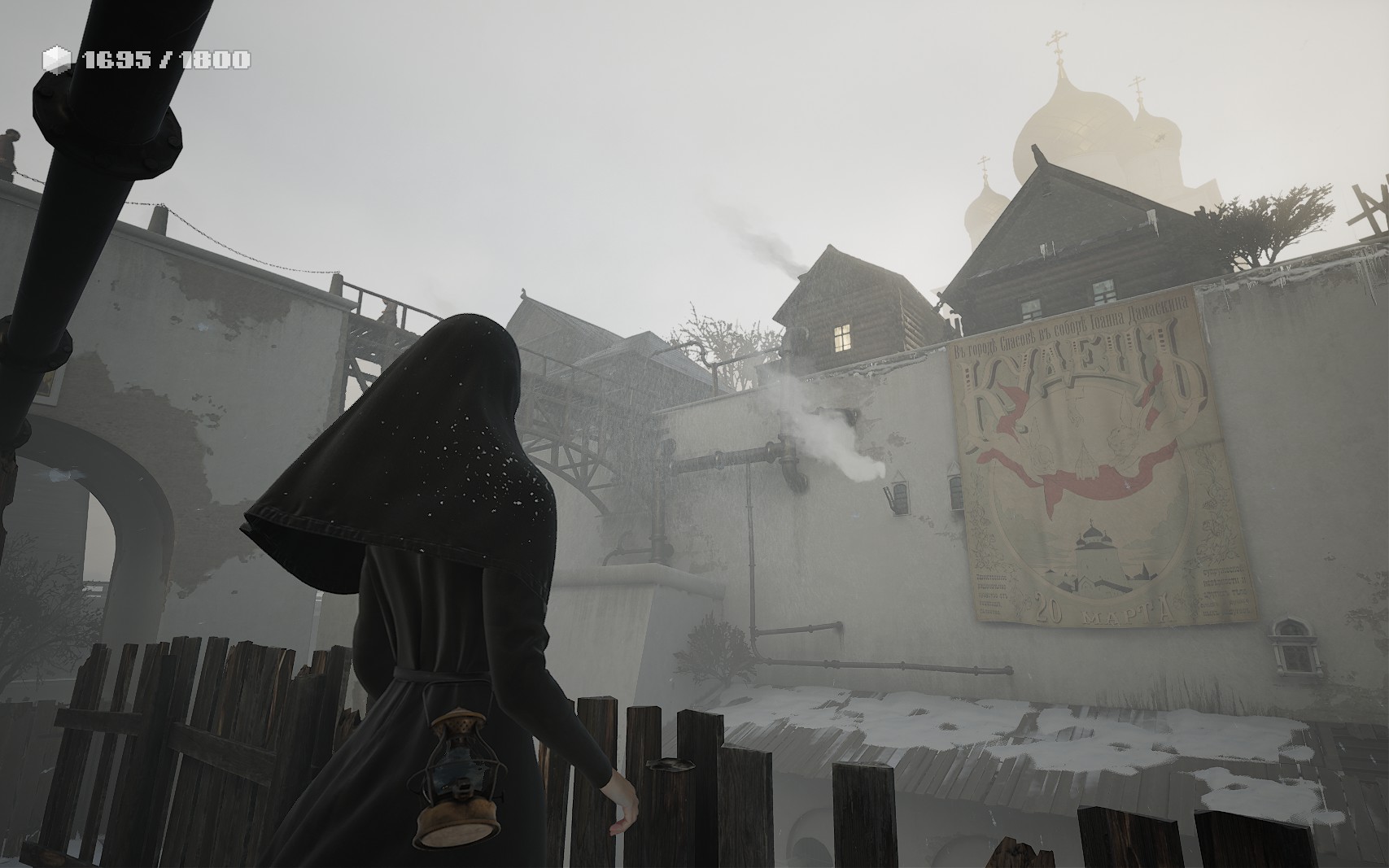
While its thematic concerns feel Dostoyevskian—see especially, the Grand Inquisitor section from The Brothers Karamazov—Indika's presentation more closely resembles the kitchen sink postmodernism of '90s film, that decade of showy contrasts when you could put breakbeats in mediaeval capers and no one would bat an eyelid. For the Eastern Europe heads there's also traces of Tarkovsky, and a hint of the dejected humour found in Pathologic 2 and the novels of Laszlo Krasznahorkai. In other words, Indika's atmosphere draws from a variety of sources that are unusual for games to draw from, bolstering its disorientating weirdness to great effect.
But that's not all! Indika's present-day journey is punctuated by a series of flashbacks taking the form of pixel art mini-games referencing Pac-Man, Micro Machines and Frogger, among others. Via these flashbacks we meet Indika as a 15-year-old teenager and eventually learn why she was forced into the monastery. What registers at first as welcome tonal relief descends, of course, into skin-crawling darkness.
The game's flagrant tonal disjuncture (cute pixels one moment, Unreal Engine miserablism the next) is one of the reasons for Indika's pre-release notoriety. It serves a greater purpose than flair, because Indika has some fun but ambiguous metatextual ambitions. For example, there's an RPG stats system which lets me cash in points for various undesirable attributes such as guilt and grief. I'm twice warned by loading screen tips that the points mean nothing, and it's true that levelling has no noticeable effect in-game. Indika appears to use XP as a form of spiritual currency—the greater her level, the stronger her spiritual rectitude and power over her alter-ego—but this is a game that revels in small ambiguities designed to tease questions rather than bludgeon with meaning. Even its ending—into which the levelling system factors heavily, but not in the way you would expect—is provocatively elliptical, even while it goes a little way towards "explaining" both the stats and the pixel art throwbacks.
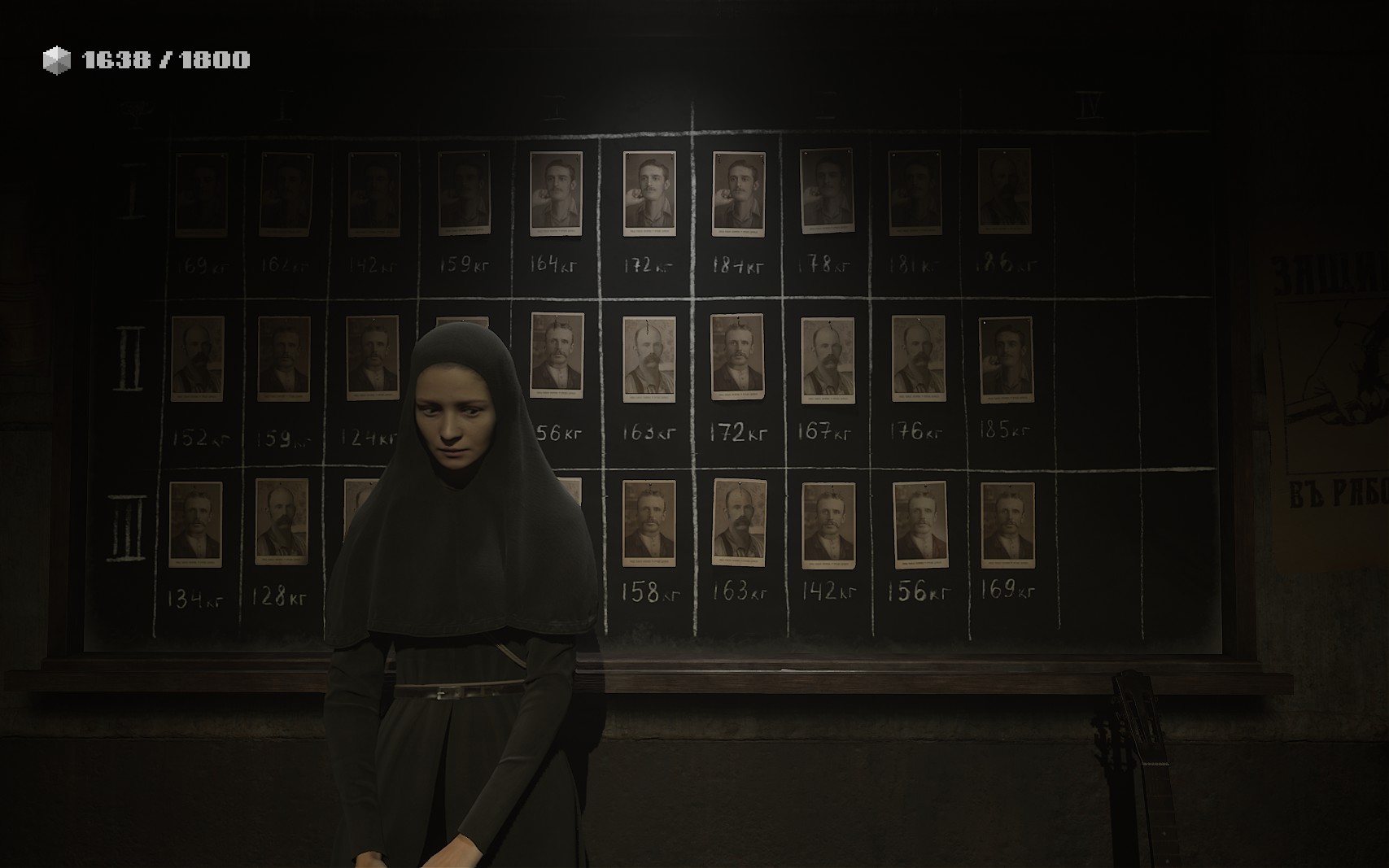
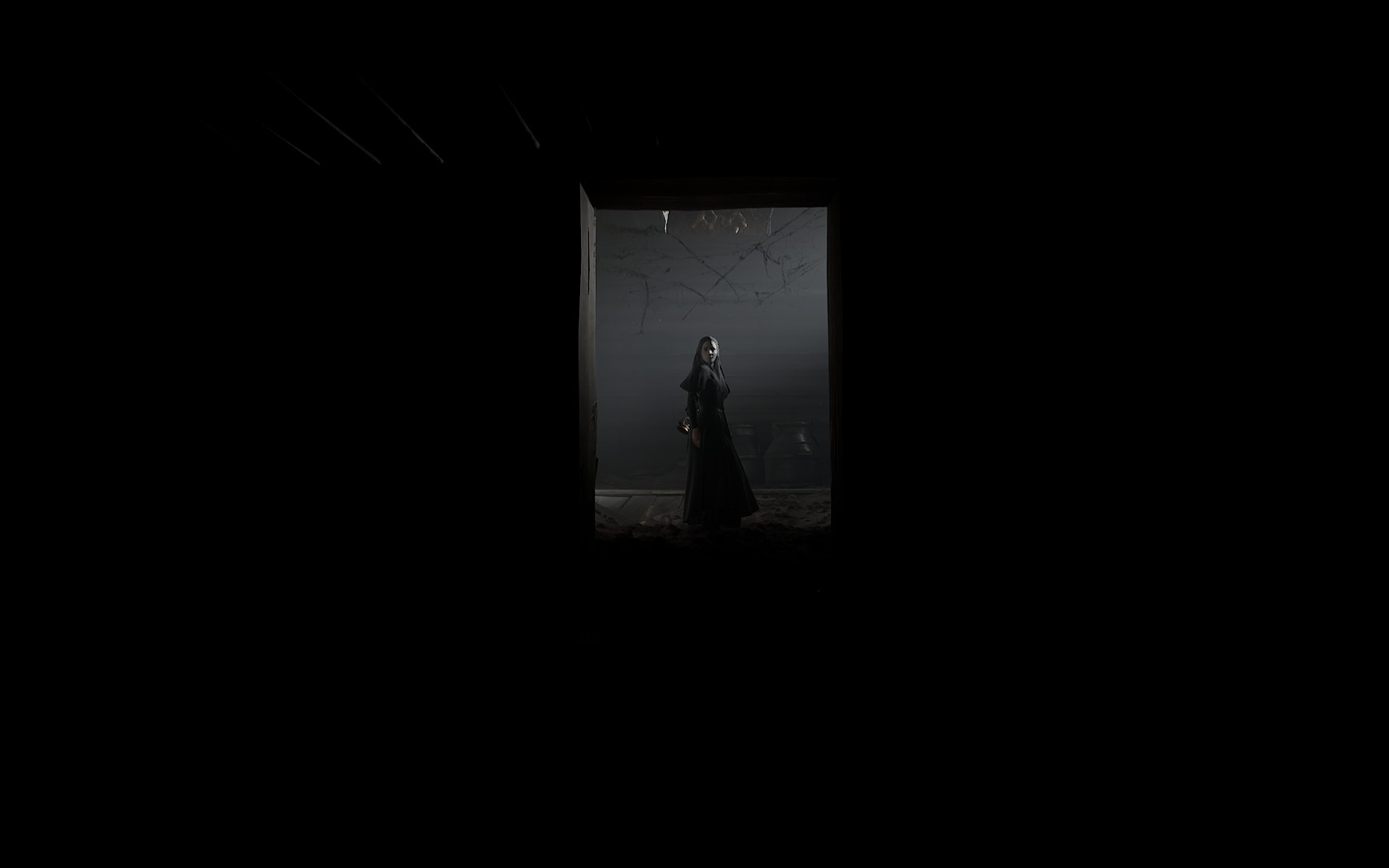
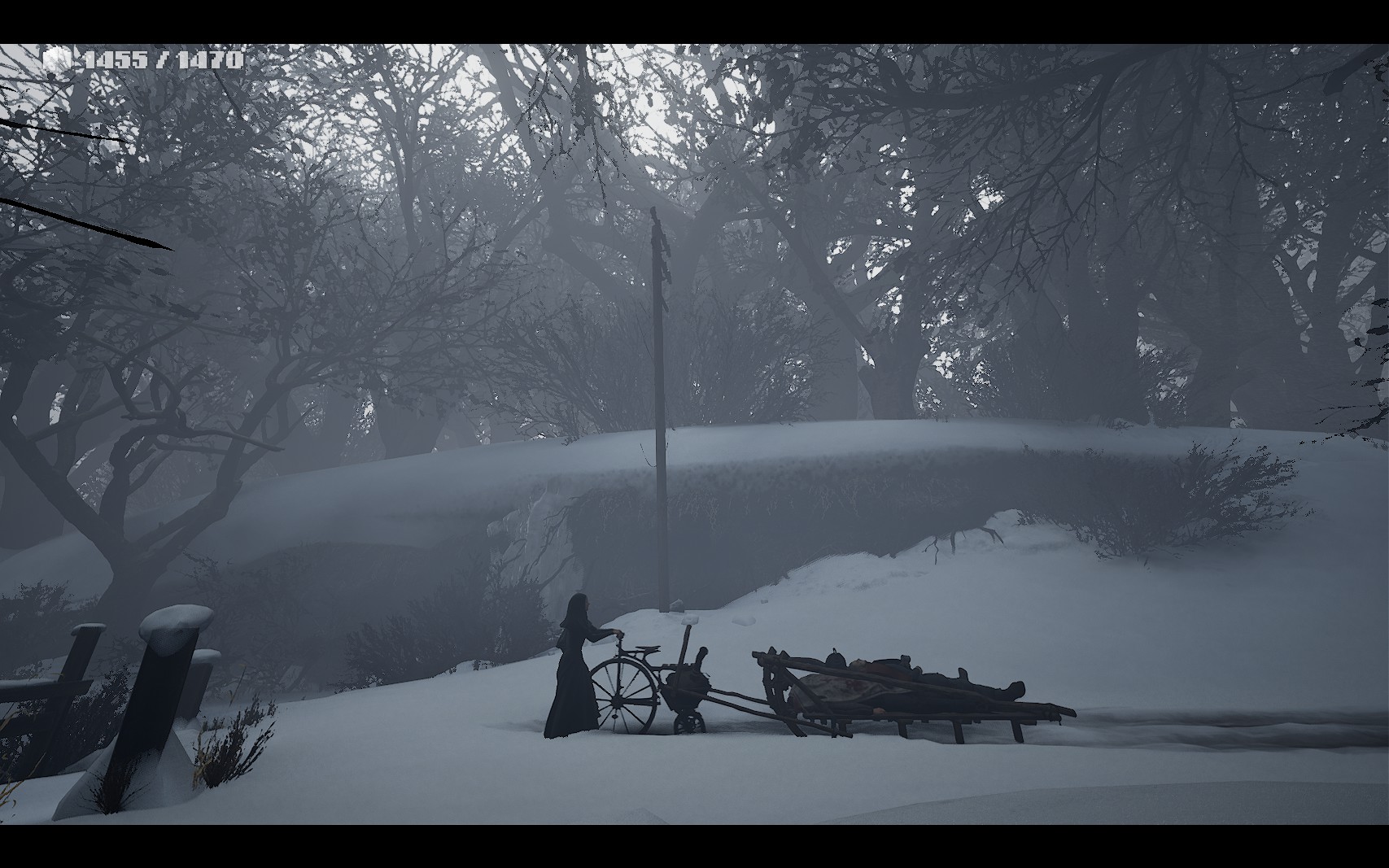
By contrast, it can also lapse into didacticism. During one of the game's most disturbing scenes, Indika exhorts her devilish alter-ego: "Convince me that I haven't done anything bad." The alter-ego scolds her for irrational adherence to religious commandments, which is probably music to her ears since at this point she's well past the point of forgiveness. "Just remember that good and evil, warm and cold, are just lines on the thermometer… one cannot exist without the other," so saith the devil. In some ways the game's habit of wedging heavy-handed speechifying into otherwise dismal set pieces is absurdly funny (and also: not at all rare for Russian film and literature!), but the experience is better when the art direction—especially the brilliant in-game cinematography, but also the phantasmagoric architecture—is allowed to do the thematic heavy lifting.
So it's a mesmeric narrative achievement, but does it cope as a game? For those looking for a Russian take on A Plague Tale: Innocence or whatever, the brevity here, the linearity, and the inhospitably hopeless mood might be deal breakers. But I respect how Indika doesn't linger on some of its more interesting puzzle ideas for the sake of fleshing out the runtime. A lot of the game's confrontational power comes from the bracing abruptness of its finish.
Indika takes some wild tonal risks but mostly plays it safe when it comes to the stuff you do with your hands. And even if it's not always successful—even if the ye olde faith-versus-reason debate does nothing for your big 21st century brain—the cumulative effect is a game that manages to mash together a bunch of familiar elements into a new form that's disquieting and gratifyingly obtuse.







